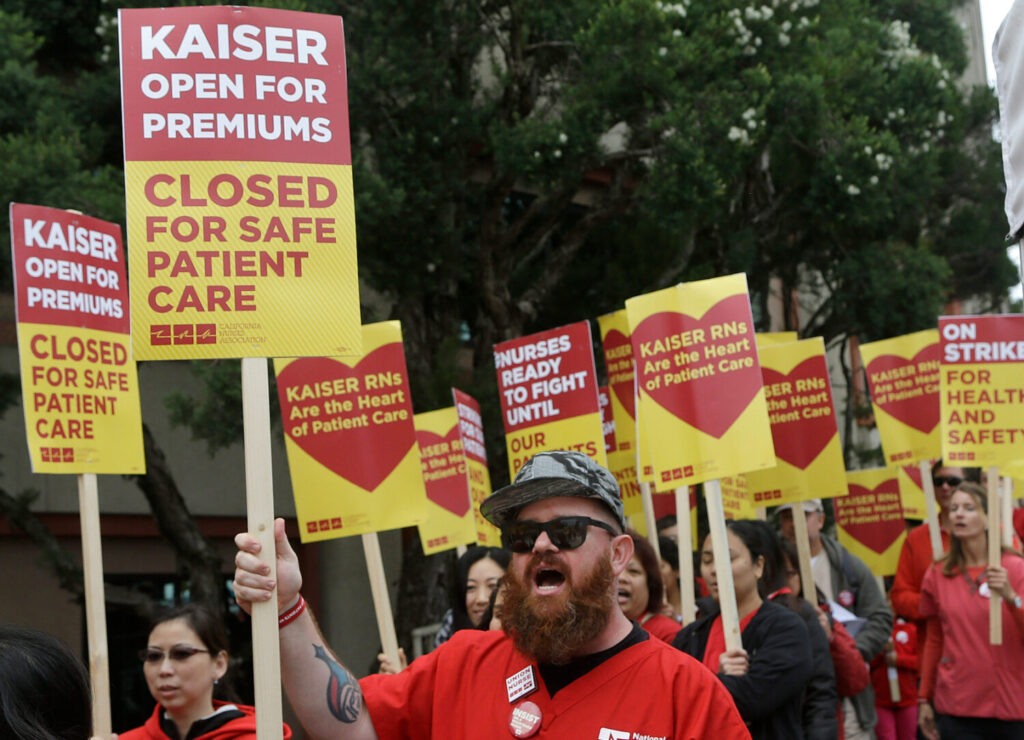Strike Wave Likely Spreading to Health Care

More than 75,000 Kaiser Permanente employees are threatening to walk out Wednesday morning if they cannot agree to a new labor contract. The previous contract expired on Saturday. Union leaders say this could be the largest strike by health care workers in recent U.S. history.
Kaiser, a large nonprofit health system, provides care for 13 million people in eight states, including California, Colorado and Washington, and the District of Columbia. The job action would involve support and other staff, including X-ray and lab technicians; sanitation workers who disinfect rooms between patients; and pharmacy workers who help dispense medications. These workers attend surgeries, run imaging equipment and assist in outpatient clinics. Doctors and many nurses are not part of the strike, which is set to last three days in some places. Some nurses, therapists and aides could also walk out.
Kaiser said it was preparing for a possible strike and would do what it could to minimize any disruptions to patients. “Our hospitals are going to remain open,” including the emergency departments, said Michelle Gaskill-Hames, regional president for Kaiser Permanente in Southern California and Hawaii.
But patients could experience delays in getting appointments, or procedures that are not considered urgent could be postponed.
Now, nurse strikes are trickier since people live or die on this. But they are not intending on a long-term shutdown of the health care system. They want to keep people alive as much as the doctors do and they care a lot more about this than the employers. But they can certainly slow things down a lot. And the simplest solution for Kaiser is to what is completely in their power to accomplish–give workers what they are wanting. It’s actually quite interesting to me that health care is among the worst employers in the nation. They really make life hell on workers. Nurses are constantly short-staffed and god forbid the employers ever bring enough workers on a shift, after all, what if one slacked off for a minute?
The strains of an acute staffing shortage have led union officials to warn that the strike is likely if Kaiser executives ignore their concerns. Workers say the lack of adequate staffing at Kaiser facilities is creating unsafe conditions for patients. The unions say that Kaiser needs better wages to attract workers and that it needs to hire enough people to make up for the exodus of staff during the pandemic.
“It’s so disappointing to see them falling down here,” said Caroline Lucas, the executive director of the Coalition of Kaiser Permanente Unions, the collection of a dozen unions that notified Kaiser last month about the possibility of a strike. The coalition represents about half of Kaiser’s unionized work force, largely in California, where Kaiser is based.
While the pandemic caused an immediate crisis in which workers were stretched too thin, Ms. Lucas said employees had been concerned about short staffing even before Covid hit. “For years, there has been a crisis on the horizon,” she said.
Imagine that–workers striking so that patients survive.


